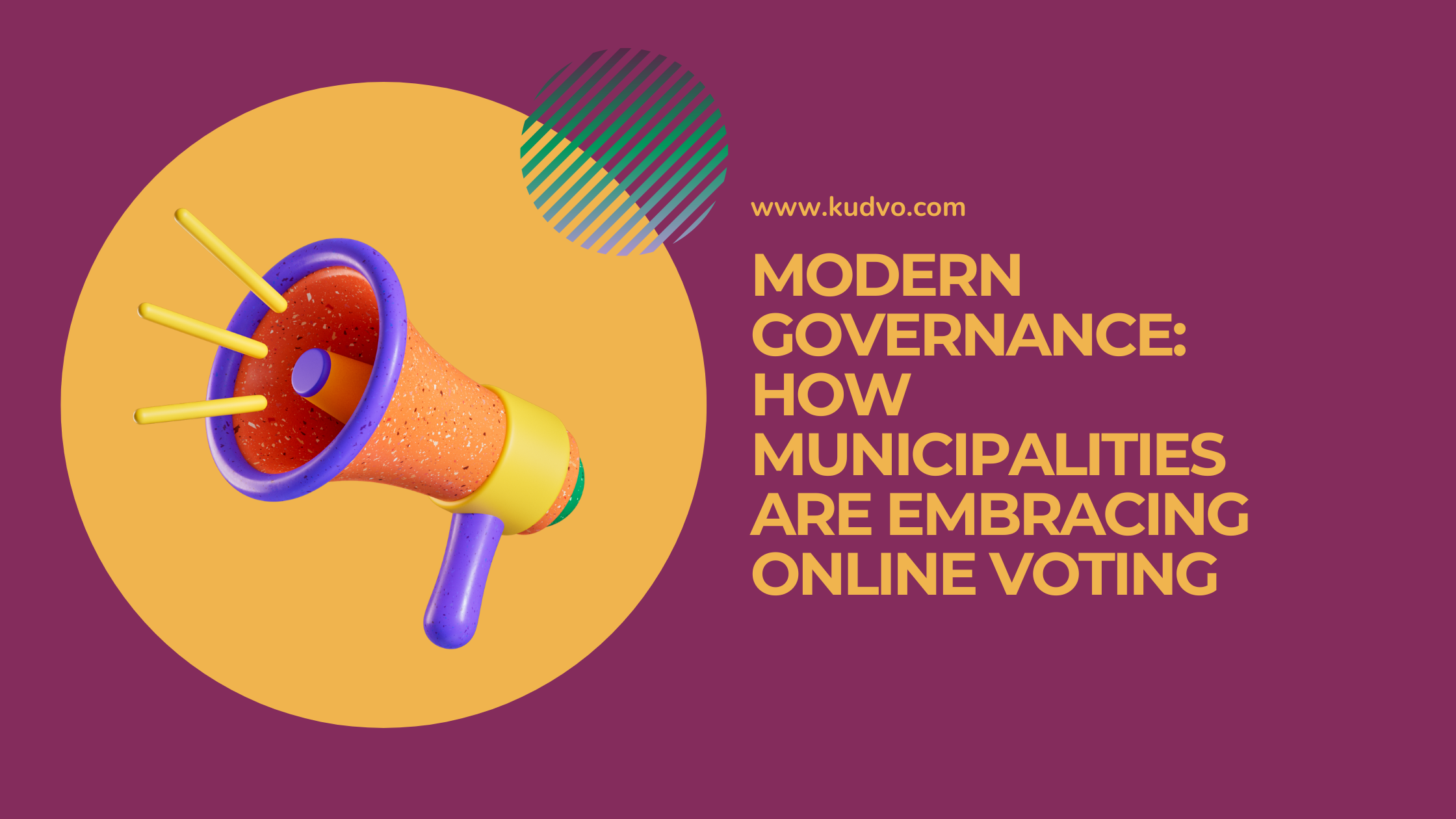Modern Governance: How Municipalities Are Embracing Online Voting
Introduction
Would you trust your local government more if voting was as easy as checking your email?
As technology becomes more deeply woven into our lives, municipalities are rethinking how they engage with citizens—starting with how decisions are made. Online voting is quickly emerging as a powerful tool for modern governance, allowing local governments to streamline elections, increase participation, and promote transparency.
In this post, we’ll explore how municipalities are adopting online voting, why it matters, and what it means for the future of civic engagement. Whether you’re a public administrator or a community member, you’ll gain valuable insights into this growing trend.
(Brought to you by Kudvo—a trusted platform for secure, accessible online voting.)
1. Why Municipalities Are Turning to Online Voting
For cities and towns, running elections can be expensive, logistically complex, and time-consuming. With shrinking budgets and rising expectations for digital services, online voting offers a modern alternative.
Key reasons municipalities are adopting online voting:
Cost Efficiency: Save on staffing, venues, printing, and mailing.
Increased Turnout: Voters can participate from anywhere—on any device.
Faster Results: Automated vote counting reduces delays and errors.
Accessibility: Makes voting easier for people with disabilities or remote residents.
Transparency: Builds trust with digital audit trails and secure reporting.
Stat Spotlight:
According to the National Civic League, municipalities that piloted online voting for community surveys or local boards reported up to a 40% increase in participation.
2. Real-World Examples of Online Voting in Local Government
Case Study 1: Westlake Village, California
This small city used an online platform to conduct a vote on community development proposals. The turnout exceeded expectations, with three times the normal engagement—thanks to mobile-friendly access and simple ballot design.
Case Study 2: Halifax, Nova Scotia
Halifax has been a Canadian leader in online municipal elections since 2008. The city’s digital voting system allows citizens to cast secure votes using PIN codes, increasing voter satisfaction and decreasing administrative costs.
Other Municipal Uses:
Participatory budgeting
Neighborhood council elections
Local referendums
School board decisions
Online voting is proving valuable beyond standard elections—it’s also empowering direct democracy at the community level.
3. Best Practices for Implementing Online Voting in Cities
Adopting online voting requires thoughtful planning and the right tools. Here's how municipalities can ensure success:
1. Choose a Trusted Platform
Select a provider with a strong track record in security, accessibility, and compliance with election laws.
→ Kudvo offers end-to-end encryption, voter authentication, and transparent audit trails.
2. Engage the Community Early
Explain how the system works.
Address security and privacy concerns.
Provide hands-on demos or tutorials.
3. Ensure Legal and Policy Readiness
Review local election regulations.
Update bylaws or policies if needed.
Involve legal counsel during implementation.
4. Pilot Before Going Big
Start with a smaller vote (e.g., a public consultation or advisory committee) to test functionality and gather feedback.
5. Promote Widely
Use emails, social media, websites, and physical signage.
Send reminders leading up to and during the voting period.
4. Addressing Concerns: Security, Trust, and Accessibility
One of the biggest barriers to online voting adoption is public skepticism around data security and election integrity. Addressing these concerns proactively is key.
Common concerns & how to tackle them:
“Can votes be hacked?”
→ Use platforms with military-grade encryption and independent audits.
“Will older citizens be able to vote online?”
→ Provide clear, simple instructions and offer phone or in-person support for those who need it.
“Is it legal?”
→ Many regions already allow digital voting for specific civic purposes. Always check with local governance codes.
Transparency and education go a long way in earning public trust.
Conclusion
As municipalities seek smarter, more inclusive ways to serve their communities, online voting is becoming a cornerstone of modern governance. It increases participation, reduces costs, and aligns with how people already use technology in daily life.
To recap:
Municipalities are adopting online voting to engage citizens more effectively.
Case studies show increased turnout and reduced admin burden.
Successful implementation requires careful planning, legal review, and clear communication.
The future of local democracy is digital—and it’s already underway.
Ready to modernize civic engagement in your community?
Explore secure online voting solutions at www.kudvo.com and take the first step toward more inclusive governance.
